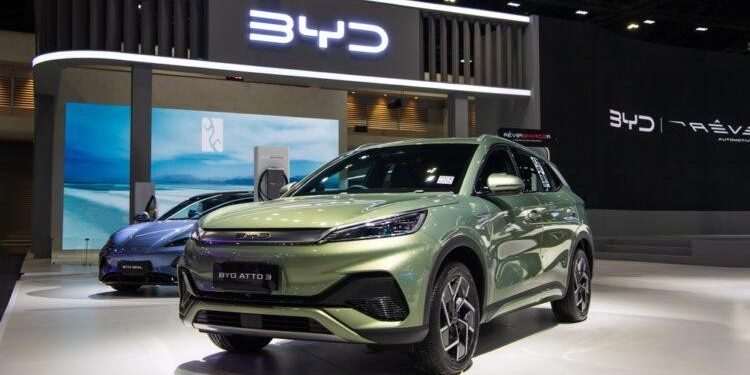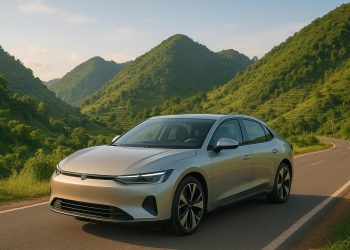BYD, a leading Chinese electric vehicle (EV) manufacturer, has encountered unexpected challenges in its expansion plans for the Vietnamese market. Despite initial optimism, the company’s efforts to establish a robust network of dealers and manufacturing facilities in Vietnam have faced setbacks, particularly due to a halt in collaboration with its major local partner.
Partnership Issues Disrupt Expansion Plans:
On May 6, 2024, BYD’s Vietnamese partner, New Energy Holdings (NEH), unexpectedly suspended its cooperation with the company. This partnership had been crucial for BYD’s plan to open 50 dealerships across Vietnam by the end of 2024. NEH, a subsidiary of Tasco Auto, had been tasked with managing the establishment of at least nine showrooms, including locations in Hanoi and Ho Chi Minh City. The sudden disruption casts doubt on the ambitious expansion timeline.
Sales and Dealership Strategy Impacted:
BYD had planned to open 15 to 20 showrooms throughout Vietnam by mid-2024. The suspension by NEH threatens these plans, as the dealer network is essential for increasing brand presence and customer access. Despite BYD’s claim that their Vietnamese operations will continue unaffected, the loss of NEH, responsible for a significant portion of the dealership network, has raised concerns about the feasibility of meeting sales targets and ensuring timely service.
Ambitious Sales Goals for 2024
In spite of these setbacks, BYD remains focused on its sales target for the second half of 2024. The company aims to sell 5,000 cars in Vietnam, a goal that seems optimistic given the total car sales in the country last year reached just over 400,000 units, with electric vehicles making up only 6%. However, analysts expect the EV market in Vietnam to grow significantly, with a compound annual growth rate of 26% until 2032, which could make BYD’s target achievable in the long term.
Production Plans and Local Manufacturing
Initially, BYD’s vehicles in Vietnam were expected to be imported from China. However, with an eye on future growth, the company has plans to shift production to Thailand by the end of 2024. This move is part of a broader strategy to diversify its supply chain and cater to increasing demand in Southeast Asia. Additionally, BYD had announced plans to build an EV manufacturing plant in Vietnam’s Phu Tho province, but these plans are now reportedly on hold in favor of a larger $1.3 billion factory in Indonesia, complicating their local manufacturing ambitions.
Challenges and Competition in the Vietnamese EV Market
While BYD is a well-established EV brand globally, it faces strong competition in Vietnam, particularly from homegrown brand VinFast. VinFast, which already dominates the local EV market, is a formidable rival for BYD. The entry of other foreign brands like Wuling, which has also made inroads with the Hongguang Mini EV, further intensifies the competition. Despite this, BYD’s diverse range of EVs, including models like the Dolphin, Seal, and Atto 3, could help carve out a niche for the company in the growing Vietnamese EV market.
Conclusion
BYD’s venture into Vietnam’s automotive sector faces significant hurdles, particularly with the sudden suspension of its key partnership and delays in local manufacturing. However, the company’s long-term prospects in Vietnam remain positive, with continued expansion plans, a growing EV market, and the eventual launch of locally produced vehicles. As the market matures, BYD’s persistence in navigating these challenges may ultimately lead to success in this promising Southeast Asian market.




